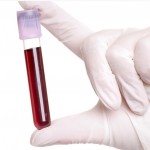 An immunotherapy that stimulates tumor necrosis factor (TNF) may hold promise as a therapy for type 1 diabetes, researchers found.
An immunotherapy that stimulates tumor necrosis factor (TNF) may hold promise as a therapy for type 1 diabetes, researchers found.
In a small, proof-of-concept study, treatment with a Bacillus Calmette-Guerin (BCG) vaccine killed off disease-causing autoimmune cells and improved insulin sensitivity as measured by C-peptide levels, Denise Faustman, MD, PhD, of Harvard, and colleagues reported online in PLoS One.
The findings suggest that “BCG or other stimulators of host innate immunity may have value in the treatment of long-term diabetes,” they wrote.
BCG, a generic vaccine, stimulates innate immunity by inducing the production of TNF, which kills the autoimmune T lymphocytes that destroy insulin-secreting pancreatic beta cells — those that cause type 1 diabetes — while leaving healthy T cells unharmed.
TNF at high doses, however, causes systemic toxicity. So instead the researchers sought an alternative approach with an FDA-approved vaccine that can induce TNF by triggering the innate immune response.
They conducted a proof-of-concept study in patients with longstanding type 1 diabetes; mean age was 35.
Six patients received injections of either the BCG vaccine or a placebo and were compared with their baseline statistics, healthy controls, and 57 reference patients with type 1 diabetes and 16 reference patients who didn’t have the disease.
Faustman and colleagues took weekly blood samples over 20 weeks, assessing insulin-autoreactive T cells and regulatory T cells (Tregs) — those that suppress the insulin-autoreactive T cells — as well as other autoantibodies including glutamic acid decarboxylase (GAD).
They also measured C-peptide levels, a marker of insulin sensitivity.
They found that all of the patients who had the BCG vaccine had increases in dead insulin-autoreactive T cells — as did one placebo-treated patient who developed acute Epstein Barr Virus (EBV) infection, which is known to induce TNF.
“The patient’s EBV status and receipt of placebo saline injections fortuitously enabled us to compare the serial T cell and pancreas effects of EBV- and BCG-triggered innate immune responses in the same study,” the researchers wrote.
Both the BCG patients and the EBV patient also had increases in the number of Tregs compared with paired healthy controls, they reported.
GAD levels varied among the vaccinated group, with one patient having a significant decrease (P=0.0001) and another a significant increase (P=0.0017). GAD levels also rose for the patient with Epstein Barr, they found.
The vaccine appeared to improve insulin sensitivity, with transient but significant increases in C-peptide levels for two vaccine recipients (by 3.49 pmol/L and 2.57 pmol/L, respectively) and for the EBV-infected patient (3.16 pmol/L).
BCG-treated patients each had more than 50% of their C-peptide values above the 95th percentile of the reference participants, and the EBV-infected patient had 18% of C-peptide values above this level, they added.
From their findings, the researchers concluded that the vaccine, at low doses, appears safe and well tolerated, and that it likely “ameliorates the advanced autoimmune process underlying type 1 diabetes by stimulating TNF, which selectively kills only disease-causing cells.”
Future trials should investigate higher doses or more frequent BCG administration, they wrote.
Source: medpage Today

















